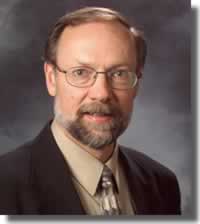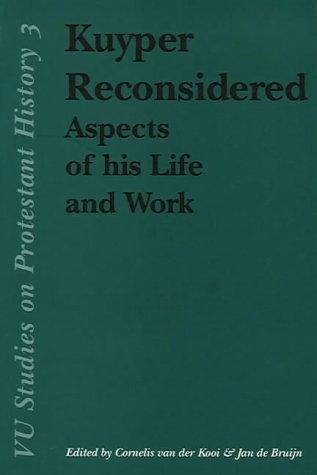Thursday 27 October 2011
Wednesday 26 October 2011
Tuesday 25 October 2011
Adrienne Chaplin on Art and philosophy
Adrienne Chaplin discusses the connections of Art and Philosophy, specifically within the area Phenomenology. She encourages us to relearn the way we sense and experience art and ultimately the world we live in.
Bio
Adrienne Dengerink Chaplin is a philosopher of art with a particular interest in materiality and meaning, and the relationship between faith and art. Born in the Netherlands, Adrienne gained her PhD in philosophy from the Free University of Amsterdam, in which city she also studied art history (with Hans Rookmaaker), musicology and violin. She studied aesthetics with Calvin Seerveld at the Institute for Christian Studies, a Christian Graduate School in Toronto, where she met her British husband Jonathan Chaplin, a political theorist. She was an Inter-Varsity staff worker for music students in London, UK where both of their children were born. From 1999 until 2007 Adrienne taught philosophical aesthetics at the Institute for Christian Studies, during which time she also served as President of the Canadian Society for Aesthetics. She is co-author of ‘Art and Soul: Signposts for Christians in the Arts’ (IVP) and currently works as a freelance writer and speaker, based in Cambridge, UK.
Saturday 22 October 2011
Friday 14 October 2011
Our mind is not some kind of hutch with ... cubbyholes
[HT Harry Van Dyke]
Friday 7 October 2011
Venema on Kuyper
Venema, Cornelius, P. (1998), ‘Abraham Kuyper--his life and legacy. Part 2 of 6’, Outlook , (Oct), 18-23.
Venema, Cornelius, P. (1998), ‘Abraham Kuyper--his life and legacy. Part 3 of 6’, Outlook , (Nov), 18-23.
Venema, Cornelius, P. (1998), ‘Abraham Kuyper--his life and legacy. Part 4 of 6’ Outlook , (Dec), 13-17.
Venema, Cornelius, P. (1999), ‘Abraham Kuyper--his life and legacy. Part 5 of 6’, Outlook , (Jan), 15-19.
Venema, Cornelius, P. (1999), ‘Abraham Kuyper--his life and legacy. Part 6 of 6’, Outlook, (Feb), 17-21.
This series of six articles, by Cornelius Venema, form an excellent overview of Kuyper's life and thought.
We are first introduced to Kuyper through a brief biography - he is seen as a church reformer, an educator, journalist and statesman. He rightly sees Kuyper as being more than a product of his 'time and temperament'. He examines what Kuyper means by Calvinism - it is more a worldview than a church confession or structure. He then looks at Kuyper's view of church: there is a contrast between a national and free church, between organism and institution and there is a stress on the pluriformity of the church.
Key areas of Kuyper's thought are then examined. These are: sphere sovereignty, the antithesis, the twofold development of science, and common grace.
In the final two articles Venema shows his Kuyperian sympathies by defending Kuyper against some criticisms. These take the form of questions:
- Was Kuyper a congregationalist?
- Should the 'pluriformity' of the church be encouraged?
- Sphere sovereignty or sphere responsibility?
Venema's series provide a great introduction to Kuyper.
Thursday 6 October 2011
(Re)readings on Kuyper 3
Jellma's own notes on this in The Kuyper Newsletter vol 2 (June 1980) summarise it well: 'Treat K. especially as a critic of secularised capitalism'. After a short biographical piece on Kuyper Jellma focuses on Kuyper's politics and his battles against liberalism. Contains much helpful details of his political skirmishes.
Vander Stelt, John (1973), ‘Kuyper's semi-mystical conception’, Philosophia Reformata, 38, 178-190.
Vander Stelt starts by noting that Kuyper continued what Calvin had done. Kuyper wanted to steer a way that avoided the 'false lifestyle of Anabaptists world-flight, Rpman Catholic world-compromise and Secualr world-conformity.' Kuyper's approach was a 'Spirit-driven, world-reformation' (p. 178). He utilises Vollenhoven's Consistent Problem Historical Method and describes Kuyper as a semi-mystic (partial universalism without the theme of macro-microcosmos).
The Kuyper Newsletter volume 1 January, 1980.
 This was the inaugural issue of a short-lived newsletter. There were four more subsequent issues. It was produced at Calvin College the editorial board comprised: Dirk Jellma, Richard Mouw and Rockne McCarthy.
This was the inaugural issue of a short-lived newsletter. There were four more subsequent issues. It was produced at Calvin College the editorial board comprised: Dirk Jellma, Richard Mouw and Rockne McCarthy.
Its aim was 'to act as a information center, a clearing house, a place for notes of interest, rather than a formal journal'.
Contents
Spykman, Gordon 'A Kuyper logo'
commenting on the appropriateness of the han cartoon as the newsletter's logo.
Rockne McCarthy 'The Kuyperian tradition and mediating structures' Briefly outlines the work of 'the newly formed Dordt Lectureship Center is the collection, translation and editing for publication of seminal essays of nineteenth century social pluralists in Germany, France, The Netherlands and elsewhere who opposed the individualistic social philosophy of the French Revolution.'
Spykman, Gordon 'Kuyper on political cartooning'
A translation of excerpts from Kuyper on political cartoons and those of Kuyper in particular.
Mouw, Richard 'Kuyper and South Africa'
Mouw notes that there is much work to be done on the influence of Kuyper's thought in South Africa. Mouw notes some useful starting points.
Jellma, Dirk W. 'Bibliographical notes'
A brief 9 item annotated bibliography of works dealing with Kuyper.
Wednesday 5 October 2011
Richard Mouw: The Challenges of cultural Discipleship - Essays in the line of Abraham Kuyper
The Challenges of Cultural Discipleship: Essays in the Line of Abraham Kuyper

Richard Mouw
Eerdmans
$20.00 Paperback
Expected ship date: 11/29/2011
248 pages; dimensions (in inches): 6 x 9
ISBN: 978-0-8028-6698-1
Richard Mouw has become well known for his incisive views on the interaction of culture and Christianity and for his efforts to make the thought of major Dutch theologian Abraham Kuyper accessible to average Christians. In this volume Mouw provides the scholarly "backstory" to many of his books as he interprets, applies, expands on — and at times even corrects — Kuyper’s remarkable vision for faith and public life.
In thirteen essays Mouw explores and develops a singularly Kuyperian perspective on key areas of Christian cultural discipleship, including public theology, sphere sovereignty, education, creation, and more. He deftly articulates an indigenous, ecumenically enriched neo- Calvinist perspective — one that appropriates and contextualizes the ideas and insights of nineteenth-century Holland for new challenges in Christian thought and service.
Saturday 1 October 2011
Recent (re)readings on Kuyper 2
This paper looks at two other Dutch men, Multatuli and Van Eeden, and compares Kuyper to them. He maintains that Kuyper was a romantic. However, he doesn't fully define what he means by Kuyper as a romantic. For de Bruijn being a romantic seems to imply an inner conflict, a melancholia and hypocondia as well as a poetic streak.
Sewell, Keith (2003), 'Calvin and the stars, Kuyper and the fossils: some reflections of historiographical reflections', Pro Rege, 10-22.
Also in J Kok (ed) Celebrating the Vision: the Reformed perspective of Dordt College (Sioux Center, IA: Dordt College Press, 2004).
Sewell examines how Calvin's and Kuyper's view of astronomy and evolution has been misconstrued. He uses these incidents to show how historiography can be used to prevent this misreading. He shows that there is a tendency for Kuyper to become 'evangelicalised'. He takes to task McGoldrick's biography for being susceptible to this. Kuyper was certainly against evolutionism but not necessarily against the scientific theory. Kuyper is closer to Calvin than to fundamentalism.
Engelsma, David J. (editor) (1998), Standard Bearer 75(2)
This issue of the Standard Bearer is devoted to Kuyper. It would seem an unusual choice as it was a reaction against Kuyper's views on common grace that promted the PRC-CRC split in 1924. The PRC rejected common grace and as such rejected Kuyper as 'the theologian of common grace'.
These series of articles focus on different aspects of Kuyper. But the continula cry is that Kuyper was best seen as a theologian and not as a cultural activist. There is a stress on Kuyper as a good reformed theologian; for example 'His theology although imperfect, was solid, sound, biblical and creedal Reformed doctrine'. The continuity between Hoeksema, one of the original dissenter's to common grace is also highlighted: 'the theology of Hoeksema is essentially that of Kuyper' and 'Hoeksema spoke highly of Kuyper and his theology'. Here then is a reappropriation of Kuyper minus his theology of common grace. As Terpstra puts it:
The legacy left by Dr. Abraham Kuyper to the Reformed faith and churches is for the most part a great and beneficial one. A significant exception to this is Kuyper's development and promotion of the doctrine of common grace. As much as we appreciate what Kuyper gave to the Reformed churches, including our own, in many areas, we must criticize, condemn, and cast away his teaching on common grace.There is an emphasis on Kuyper as church reformer and his role in the Doleantie and the subsequent reunion with the 1834 Afscheiding succession and on his views of particular grace.
Contents
Meditation - Abraham Kuyper
- When What Is Mortal Is Swallowed Up by Life
- Introduction
- "Father" Abraham or The Indebtedness of the PRC to Abraham Kuyper
- A Short Biography
- The Doleantie
- --and the Union of 1892
- The Son of God Eternally our Mediator
- Developer and Promoter of Common Grace
- Do We Hold to Kuyper's View of Presupposed Regeneration?
- Politician-a Critique
- "Creating a Christian Worldview: Abraham Kuiper's Lectures on Calvinism" Peter
S. Heslam (Reviewed by Prof. D. Engelsma)




